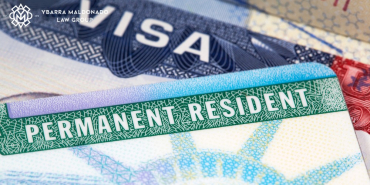Germany Greenlights Dual-Citizenship to Attract Skilled Workers

In a significant development, the Bundestag, Germany's lower house of parliament, voted on Friday to simplify the process of obtaining German citizenship and expand the availability of dual citizenship.
The reform aims to improve the appeal of the nation to skilled workers and tackle the persistent labour shortage. Out of the total of 639 votes, the bill garnered 382 votes in favour, 234 votes against, and 23 abstentions.
Key Changes to the Rules
Reduced Waiting Periods: The updated legislation allows non-natives to seek German citizenship after residing in the nation for five years, instead of the previous obligation of eight years. Those who have seamlessly assimilated into German society may even qualify for naturalization after only three years.
Wider Access to Dual Citizenship: Previously, only citizens of other EU countries or Switzerland were eligible for dual nationality. However, the revised regulations now permit individuals from any background to acquire dual citizenship directly.
Emphasis on Integration: To streamline the process of obtaining citizenship, the government is simultaneously striving to enforce stricter criteria for self-reliance and commitment to Germany's democratic principles.
Motives and Impact
Attracting Skilled Workers: Interior Minister Nancy Faeser considers this step vital in appealing to global talent. According to her, Germany must compete with countries such as the United States and Canada, and providing citizenship is an integral component of their overall strategy.
Integration: The proposed changes could potentially give voting rights to many third-generation Turkish immigrants, helping them become more involved in society and civic activities.
Opposition's Concerns and Position
The CDU-CSU alliance has expressed its disapproval of the proposed changes, emphasizing the need to safeguard the significance of German citizenship. They prefer adopting a more stringent approach towards immigration in response to the increasing popularity of the far-right Alternative for Germany (AfD) party, which has been witnessing a rise in support according to recent surveys.
While there is a push for simplifying the process of acquiring citizenship, the government intends to enforce more stringent immigration policies in specific instances, particularly for individuals who are incapable of sustaining themselves or do not adhere to the "free, democratic basic order in Germany." Furthermore, the Bundestag has approved legislation to prolong detention to avoid last-minute deportation mishaps. This measure elevates the upper limit for lawful confinement from 10 to 28 days.














Add new comment